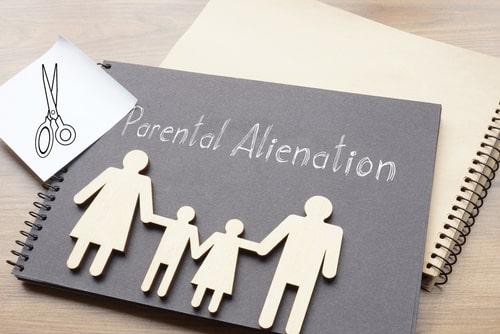630-462-9500
After Hour New Client Telephone Number 630-690-6077
1776 S. Naperville Road, Building B, Suite 202,
Wheaton, IL 60189
Recent Blog Posts
What is the Right of First Refusal in Divorce in Illinois?
 In Illinois divorce cases, the court seeks to ensure that the children are affected to the least extent possible. The courts operate with the notion that the more involved both parents are in the child's life post-divorce, the better off the child will be.
In Illinois divorce cases, the court seeks to ensure that the children are affected to the least extent possible. The courts operate with the notion that the more involved both parents are in the child's life post-divorce, the better off the child will be.
Because of this, an important concept in Illinois child custody law that can significantly impact parents' rights and responsibilities is the Right of First Refusal. To understand this important concept, hire an attorney to get the assistance you need for this matter and other matters related to your divorce.
At The Stogsdill Law Firm, P.C., the experience our team of skilled attorneys possesses is second to none. With more than a century of combined experience, our attorneys know every aspect and important consideration involved in divorce, which we are then able to share with you to maximize the effectiveness of our legal guidance.
Can My Spouse Kick Me Out of the House During a Divorce in Illinois?
 With any divorce comes a great deal of uncertainty. And with uncertainty comes stress. Among your most intense fears may involve you being unsure where you will live in the future or whether or not your spouse is legally able to kick you out of the house while your divorce is ongoing. If you have concerns regarding your living situation or perhaps your spouse has begun threatening to kick you out, discuss these concerns with a qualified attorney. Your attorney is trained in Illinois divorce law and can ensure that you are aware of your rights and make certain those sacred rights are protected.
With any divorce comes a great deal of uncertainty. And with uncertainty comes stress. Among your most intense fears may involve you being unsure where you will live in the future or whether or not your spouse is legally able to kick you out of the house while your divorce is ongoing. If you have concerns regarding your living situation or perhaps your spouse has begun threatening to kick you out, discuss these concerns with a qualified attorney. Your attorney is trained in Illinois divorce law and can ensure that you are aware of your rights and make certain those sacred rights are protected.
At The Stogsdill Law Firm, P.C., we take pride in our stellar reputation in the Illinois legal community. As one of the most prestigious law firms in the town of Wheaton and surrounding counties, we have access to the resources that can be the difference maker in a case.
Understanding Property Rights in an Illinois Divorce
Neither party in an Illinois divorce is required to leave the family home while divorce proceedings are underway. Furthermore, as a state that practices the equitable distribution of marital property, both spouses have the legal right to the marital home, regardless of whose name is on the title or lease.
Impact of a Spouse's Job Loss in a Divorce in Illinois
 Few events are more life-altering than a divorce. When a spouse faces the additional stress of losing his or her job during an already stressful time, the impact can be enormous. In Illinois, understanding how a spouse's job loss can influence the divorce process is important, as it can undoubtedly present challenges and new considerations to the already turbulent process of divorce. And remember, to ensure you are legally protected throughout the divorce process, hire an attorney from a respected Illinois law firm.
Few events are more life-altering than a divorce. When a spouse faces the additional stress of losing his or her job during an already stressful time, the impact can be enormous. In Illinois, understanding how a spouse's job loss can influence the divorce process is important, as it can undoubtedly present challenges and new considerations to the already turbulent process of divorce. And remember, to ensure you are legally protected throughout the divorce process, hire an attorney from a respected Illinois law firm.
At The Stogsdill Law Firm, P.C., we understand on a human level how difficult divorce is. No one enters a marriage thinking it will one day end. But for one reason or another, divorces still happen. It is also no secret that the process of divorce can present a wide array of challenges for all involved. Hire a law firm with more than 100 years of combined experience to protect yourself from the legal hazards of divorce. Experience matters and the highly trained and respected lawyers with The Stogsdill Law Firm, P.C. are ready to wield their experience to pursue your best interests.
Am I Responsible for My Spouse’s Medical Debt in Illinois?
 Marriage is a union of love and partnership, but it can also come with serious financial responsibilities that may raise questions in the event of a divorce. One very common concern that arises during many divorce proceedings is the issue of medical debt and whether one spouse is responsible for the other’s medical expenses. In Illinois, understanding the laws surrounding medical debt in the context of divorce is crucial for protecting your financial well-being. For issues involving divorce, medical debt, and more, contact a lawyer to get dependable legal assistance from a reputable professional.
Marriage is a union of love and partnership, but it can also come with serious financial responsibilities that may raise questions in the event of a divorce. One very common concern that arises during many divorce proceedings is the issue of medical debt and whether one spouse is responsible for the other’s medical expenses. In Illinois, understanding the laws surrounding medical debt in the context of divorce is crucial for protecting your financial well-being. For issues involving divorce, medical debt, and more, contact a lawyer to get dependable legal assistance from a reputable professional.
It is no mistake that The Stogsdill Law Firm, P.C. is recognized as one of the most prestigious family law firms in DuPage County and greater Illinois. Through years of diligent practice, we have molded our firm to meet the needs of families and individuals facing a variety of legal circumstances. We have successfully represented many clients, and we are ready to represent you.
Identifying Signs of Parental Alienation in Divorce in Illinois

Divorce is a very difficult process to go through. With tensions high and emotions raw, it is not entirely uncommon for people to act in ways they would not regularly act in. Sometimes, to “get back” at the other parent, a parent may try to turn his or her child against the other parent. Aside from being morally wrong, parental alienation can be extremely damaging for children, leaving emotional and psychological scars that can last a lifetime. If you are getting a divorce in Illinois and believe your soon-to-be ex-spouse is engaging in attempting to alienate your child from you, discuss these serious concerns with your attorney.
With over 110 years of combined legal experience, the skilled team of attorneys at The Stogsdill Law Firm, P.C. is highly aware of the many forms of parental alienation and how this type of wrongful conduct can rear its ugly head during divorce proceedings. If you have concerns regarding parental alienation, our trusted team of legal professionals is ready and willing to help.
Proving Domestic Abuse in a Divorce in Illinois
 When someone is hurt by domestic abuse in a marriage, deciding to get a divorce can be tough but important for their safety and healing. Even though Illinois law does not let you use domestic abuse as a reason to get a divorce, it is still important when figuring out things like who gets to take care of the kids. If you have been hurt in your marriage, it is crucial to show that the abuse really happened. Talk to your lawyer about the best ways to do this.
When someone is hurt by domestic abuse in a marriage, deciding to get a divorce can be tough but important for their safety and healing. Even though Illinois law does not let you use domestic abuse as a reason to get a divorce, it is still important when figuring out things like who gets to take care of the kids. If you have been hurt in your marriage, it is crucial to show that the abuse really happened. Talk to your lawyer about the best ways to do this.
At our law firm, our team has over 45 years of experience. We are skilled at helping people with their divorces, especially when there has been domestic violence. You can count on us to guide you through this tough time. We will sit down with you, listen and examine the facts of your case, and then begin developing a legal strategy tailored to your situation.
Keeping Track of Abuse
One key way to show domestic abuse in a divorce is to write down every time it happens. Note the dates, what happened, and any injuries you got. Keeping a journal, saving mean messages, and taking pictures of your injuries are all ways to help prove your point in court. This shows there is a pattern and how serious things are. The establishment of a pattern is a critical piece of evidence that can be highly beneficial for those looking to prove domestic abuse has occurred.
Starting a New Relationship While Getting a Divorce in Illinois
 Getting a divorce is a big change. It ends a marriage but can also be a chance to start fresh and meet new people. However, if you are in Illinois and thinking about dating while still finalizing your divorce, there are some important things to consider.
Getting a divorce is a big change. It ends a marriage but can also be a chance to start fresh and meet new people. However, if you are in Illinois and thinking about dating while still finalizing your divorce, there are some important things to consider.
First off, you might wonder if it is okay to date during a divorce. It is a tricky question without a simple answer. If you have doubts or questions, it may be a good idea to talk to a lawyer. They can give you advice and help you understand how dating might affect your divorce.
Understanding Illinois Divorce Laws
In Illinois, the law does not blame anyone for the divorce since it is a no-fault state. This means that when judges decide on things like who gets what, who the children live with, or who pays child support, they do not consider whether someone had a boyfriend or girlfriend. However, dating before you are officially divorced can still make things more emotionally charged. It can affect how you and your soon-to-be ex-spouse get along, which might make the divorce tougher or longer.
How Divorce Affects Your Immigration Process in Illinois

Divorce is a significant life event that can have far-reaching implications, especially for individuals navigating the complex landscape of immigration in Illinois. Understanding how divorce affects your immigration process is crucial for protecting your legal status and planning for the future. If you have concerns regarding how your divorce may affect your immigration status, discuss your situation with a trained attorney today.
At The Stogsdill Law Firm, P.C., we understand how scary divorce is for many couples. Often, this fear is centered around uncertainty regarding the future. These fears can often be amplified when there are questions regarding immigration and how a divorce may affect someone’s legal status in the United States. Our compassionate attorneys are ready to assist you through every step of the process, ensuring you have the guidance necessary to protect your future.
Who Keeps the Pet After a Divorce in Illinois?

Divorce can be a very difficult and emotional time for couples, especially when it comes to deciding who keeps the beloved family pet. In Illinois, pets are considered marital property under the law, which means they are subject to the same property division rules as any other asset. Understanding how pets are classified as marital property in Illinois is crucial to navigating the process of determining pet ownership post-divorce.
At The Stogsdill Law Firm, P.C., we understand that divorce is often among the most challenging processes anyone will ever go through. As a result, we tailor our client-focused legal representation to ensure that all of our clients feel supported throughout the entirety of the process. Whether you need a guiding hand or a shoulder to lean on, clients can trust that our compassionate attorneys will get the job done.
Protecting Business Interests in a Divorce in Illinois
 Imagine this: You have poured your heart and soul into building a successful business in Illinois. It is your passion and your livelihood. But what happens to your hard-earned business when faced with a potential divorce? Protecting your business interests during a marital split is sort of like safeguarding a prized possession from a turbulent storm. In Illinois, understanding the legal strategies available to shield your business from the fallout of divorce is crucial, and that begins with hiring an experienced attorney.
Imagine this: You have poured your heart and soul into building a successful business in Illinois. It is your passion and your livelihood. But what happens to your hard-earned business when faced with a potential divorce? Protecting your business interests during a marital split is sort of like safeguarding a prized possession from a turbulent storm. In Illinois, understanding the legal strategies available to shield your business from the fallout of divorce is crucial, and that begins with hiring an experienced attorney.
At The Stogsdill Law Firm, P.C., our experienced team of legal professionals has a combined experience of over 100 years. This type of robust experience makes certain that we know the process of divorce and family law in Illinois and can represent our clients better than anyone.
Your First Step Should Be Determining What Your Business is Worth
Before diving into your divorce, you must determine the actual value of your business. Seeking professional help from appraisers or financial professionals can help provide a clear picture of your business’s worth, considering factors such as assets, revenue, and market conditions.




















